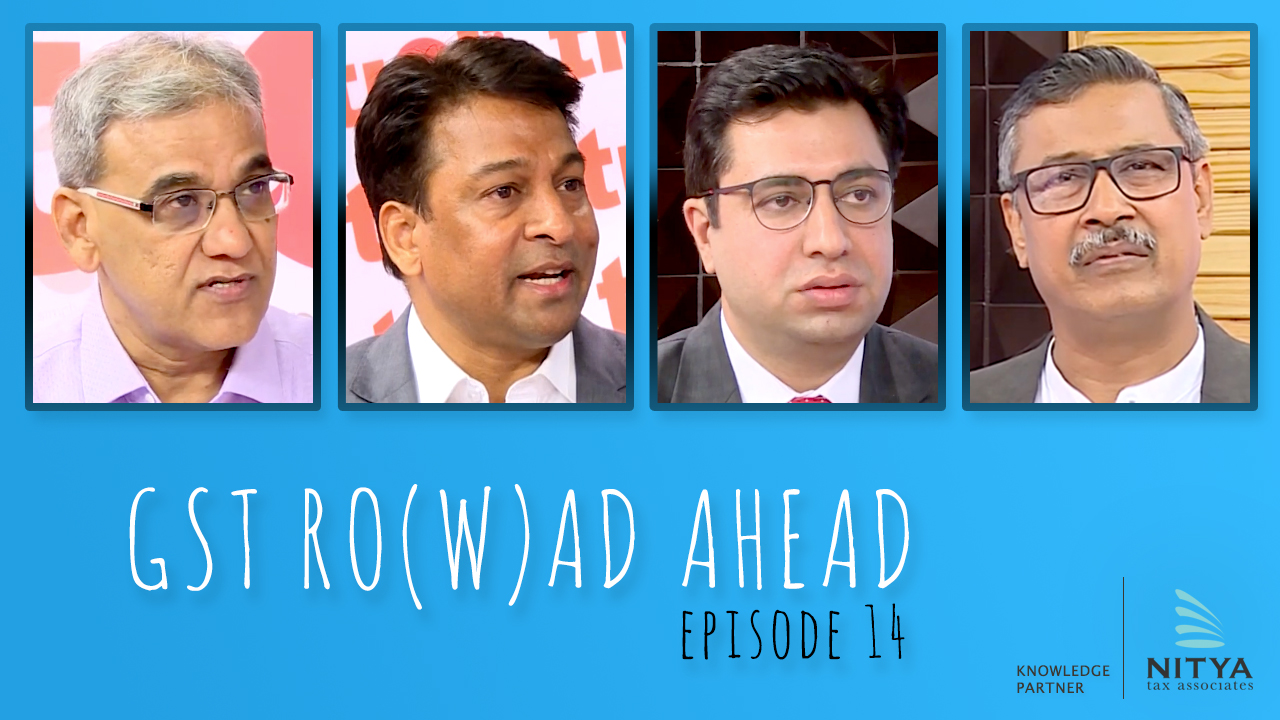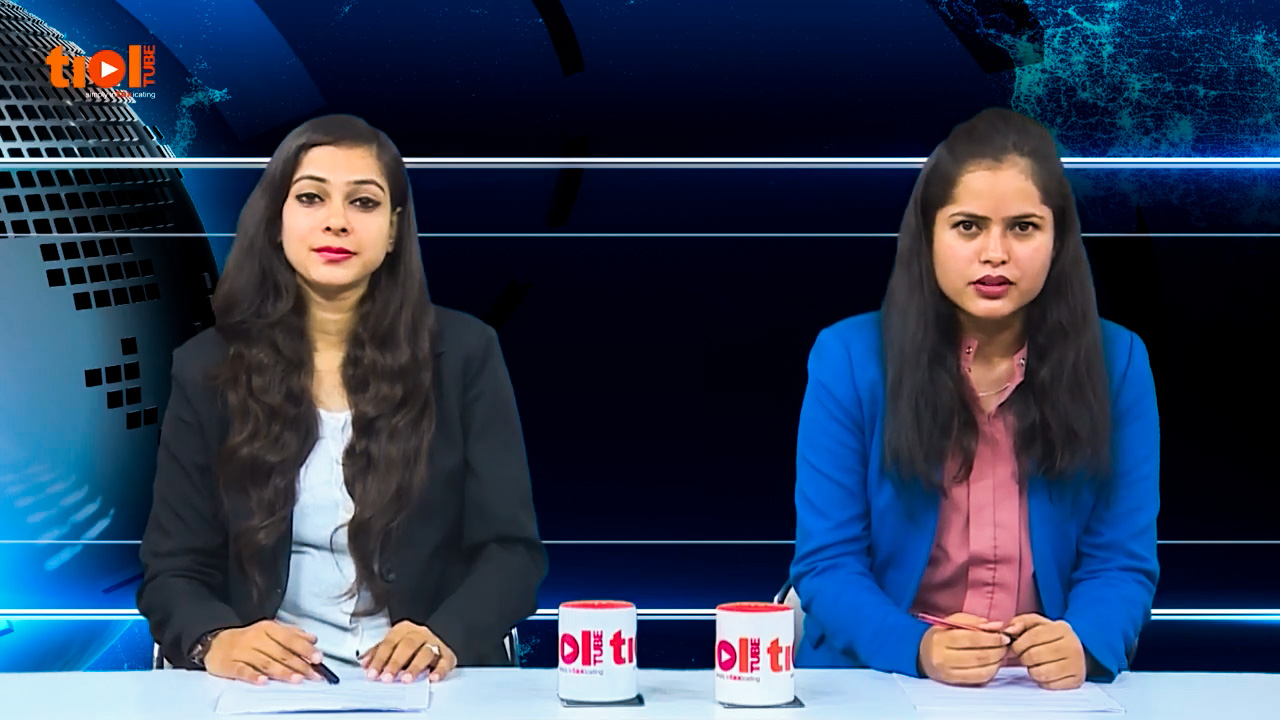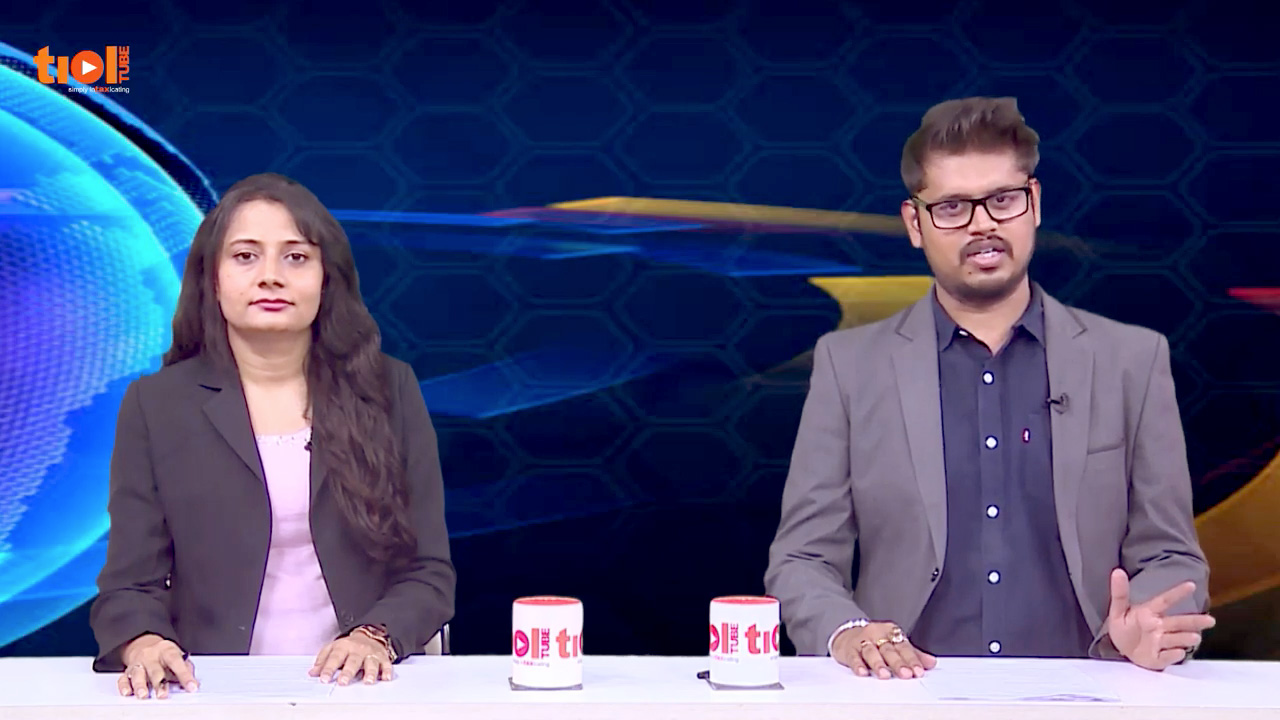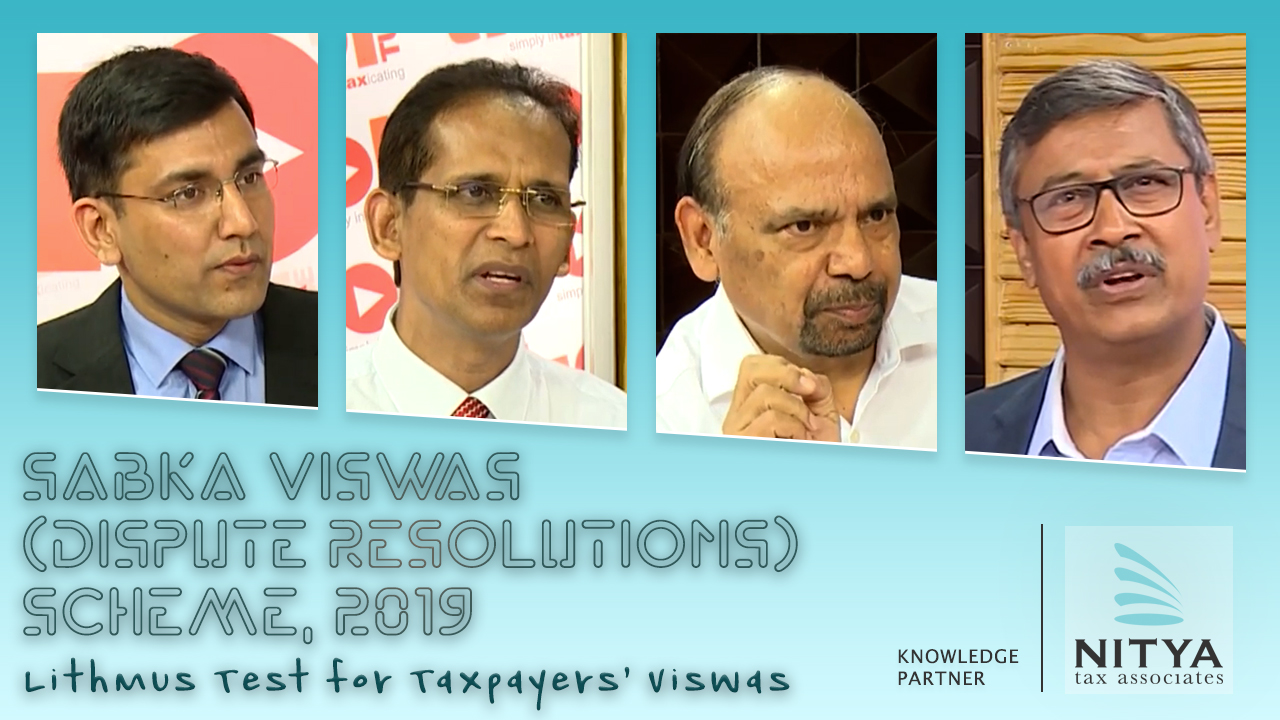|
SERVICE TAX 2019-TIOL-2765-CESTAT-BANG
Quilon Radio Service Vs CCT & CE
ST - The assessee had filed a refund claim on account of excess payment of Service Tax during year 2012-13 - The said refund claim was rejected as time barred - It is an undisputed fact that the assessee has paid excess amount of Rs.8,66,201/- for the financial year 2012-13 for which he filed the refund claim which was initially rejected by original authority on time bar but on appeal, Commissioner (A) has allowed the appeal of assessee and set aside the time bar and remanded the case back to the original authority to pass a fresh order on merits - Thereafter on remand, the original authority has admitted that the claim filed by assessee is not time barred and no unjust enrichment is applicable and at the same time, it is also been admitted in O-I-O that excess amount of Service Tax has been paid but in spite of that refund claim was rejected on the ground that another demand for Service Tax was confirmed in O-I-O as well as in O-I-A - Confirmation of demand of Service Tax on notional interest on security deposit was challenged before High Court and the same is pending before the same but rejection of the refund claim only on the ground that demand is pending in another case is not tenable in law - Both the cases are independent, the present case relates to refund of excess Service Tax paid whereas the demand for Service Tax on notional interest on security deposit is altogether independent litigation which is pending disposal before the High Court - It is a settled law that refund cannot be denied merely on the ground that some demand is pending in another case which is subjudice before the Court - Therefore, rejection of refund claim only on the ground that issue of Service Tax liability on notional interest is pending is not sustainable in law - Therefore, the impugned order is set aside: CESTAT
- Appeal allowed: BANGALORE CESTAT
2019-TIOL-2764-CESTAT-DEL
Vodafone Digilink Ltd Vs CCE & ST
ST - The assessee is engaged in providing "telecommunication service" - They provides "Interconnection Usage" to other telecommunication service providers for 'Short Message Service" (SMS) which means that SMS originating in network of other telecommunication service providers terminate in the network of assessee - The primary issue which arises for consideration is, whether in the absence of any consideration/charges having been agreed upon between assessee and the 6 Telecom operators and without any such consideration/amount being charged by assessee for interconnection usage for SMS, there was any taxable service rendered by assessee for disputed period - There is absence of consideration for period under dispute - In absence of consideration in terms of Section 65B(44) of FA, 1994 there is no service rendered - For a service to qualify as service for the purposes of Chapter-V of FA, 1994 it has to be an activity of service carried out by a person for another for consideration - The point of taxation have not occurred in terms of Point of Taxation Rules, 2011 and hence no liability to pay service tax arises as raising of an invoice is a condition precedent under Rule 3(a) of the said rules - Admittedly, no invoice has been raised by the assessee on alleged service receiver - Further, there was no contract of service entered into by the parties providing for any periodical obligation requiring the receiver of alleged service to make any payment - It was only after the matter of 'usage charges' went before the Telecom Disputes Settlement & Appellate Tribunal (TDSAT), New Delhi and interim orders were passed in November, 2012 creating obligation on the receiver of alleged service to make payment of 50% of proposed charges, thereafter assessee have raised invoice charging service tax and thereafter on receipt of such consideration have complied with and paid the service tax - Further, the SCN is also bad for invoking extended period of limitation as enquiry in transaction under dispute had started in February, 2013 whereas the SCN was issued only on 31.03.2014 for period under dispute - Further, it is settled legal position that where service is rendered free without charging any consideration the same does not attract service tax as upheld by Supreme Court in Aptico Limited - 2010-TIOL-1564-CESTAT-BANG - Accordingly, the impugned order is set aside: CESTAT
- Appeal allowed: DELHI CESTAT
2019-TIOL-2763-CESTAT-MAD
UR Options Vs CGST & CE
ST - During the relevant period, duty demand was raised against the assessee in respect of Short Term Accomodation Service, Renting of Immovable Property Service and Business Auxiliary Service - Later, the adjudicating authority appropriated an amount of duty deposited by the assessee, apart from also charging interest & imposing penalty - On appeal, the Commr.(A) remanded the matter to the adjudicating authority for verifying documents regarding assessee's eligibility for abatement under Notfn No 34/2011-ST - The Commr.(A) also rejected the assessee's claim for refund of duty mistakenly - Hence the present appeal.
Held - The adjudicating authority and the Commr.(A) both relied on CBIC Circular No. 984/8/2014-CX dated 16.09.2014, which is one of the instructions regarding treatment of pre-deposit post first appeal - It can safely be assumed that the Revenue has no disputes regarding the payment made as canvassed, during the course of investigation, which amount has been appropriated through the order in original - If the Revenue strictly follows the requirements of Section 35FF r/w the Circular, then the liability of the assessee remains at paying either 7.5% or 10% - Hence the assessee could also claim refund in excess of such 7.5% or 10% as the case may be - Admittedly, the assessee is not claiming refund of the any part of the amount it paid during the investigation which is shown to have been appropriated, but only claimed refund of the excess deposit made by mistake while filing its first appeal - As the purpose of pre-deposit is satisfactorily met by the assessee, it is eligible to receive the excess duty pre-deposited mistakenly - When the legislature makes it clear that what is collected as pre-deposit, in absence of any finding regarding non-satisfaction of such conditions for pre-deposit, cannot be retained by the Revenue where such excess amount is mistakenly remitted: CESTAT
- Assessee's appeal allowed: CHENNAI CESTAT
CENTRAL EXCISE
2019-TIOL-2250-HC-MAD-CX L And T Thales Technology Services Pvt Ltd Vs Commissioner of GST & CE
CX - The present writ petitions were filed to assail two Orders in Original passed against the assessee by the jurisdictional Assistant Commissioner of Central Excise - One such order partly rejected the refund claimed by the assessee, whereas the other order rejected the entire refund claimed by the assessee - Both refund claims pertained to different periods.
Held - Admittedly in both cases, the officer concerned had not heard the assessee - The assessee rightly contended that if such authority chose to reject the refund claim in part or entirely, then the assessee must be put on notice and the matter must be decided after granting opportunity of personal hearing as well - Such view is supported by decisions rendered by this very court - Hence the parties are directed to treat the orders as SCNs issued to the assessee - The assessee shall file reply within four weeks' time from date of receipt of a copy of this order, whereupon the authority concerned shall pass a fresh order: HC
- Assessee's writ petitions disposed of : MADRAS HIGH COURT
2019-TIOL-2249-HC-MAD-CX
Tamil Nadu Generation And Distribution Corporation Ltd Vs CCE
CX - The assessee-company undertakes the process of cutting & drilling of holes of MS Angles - During the relevant period, an SCN was served, proposing duty demand on transformer structural materials, otherwise known as tower parts and structural parts which consist of clamps, different types of channel cross arms, stay set and transformer structure special clamps cleared as non-excisable during the relevant period - The SCN proposed to classify such items under Heading 7308 of Schedule to the CETA 1985 - It invoked the erstwhile proviso to Section 11(A), 11(A)(v) of the Act and proposed penalty u/r 25 r/w Section 11AC of the Act - The assessee filed reply, claiming that process of cutting did not amount to manufacture - Nonetheless, on adjudication, duty demand was raised for the relevant period and penalty was imposed - Hence the present writ.
Held - In respect of the duty paid on line materials, tower parts and structural parts for an earlier period, the Revenue accepted there to be no manufacturing activity & consequently refunded the duty paid - The Revenue had accepted the assessee's stand of there being no manufacture activity, but in the O-i-O being assailed, a contradictory stand was taken by alleging that the assessee's activities amounted to manufacture - Besides, during pendency of this writ, the question arose regarding validity of refund sanctioned in respect of duty paid on processes like cutting, drilling, punching, bending & staightening of MS Angles, MS Channels & MS Plates not amounting to manufacture, the Commr. of Central Excise held that processing of structural materials out of MS Angles did not amount to manufacture and dropped the proposal to recover the refund sanctioned - Moreover, similar issue arose in the assessee's own case and were settled in the assessee's favor - Where the assessee's activities were not found to constitute manufacture and such findings were sustained by the Apex Court, then the O-i-O passed in the present case, alleging that the assessee's activities constituted manufacture, are unsustainable - Hence the O-i-O merits being quashed: HC
- Assessee's writ petition allowed : MADRAS HIGH COURT
2019-TIOL-2247-HC-MUM-CX
Technova Imaging Systems Pvt Ltd Vs CCE ST
CX - The assessee-company manufactures Photographic plates & films, chemical preparation for photographic uses, ink jet media and emulsifiers falling under Chapter 37, 39, 48 and 84 of the CETA 1985 - The assessee operates out of two units - One of the final products manufactured by the assessee is lacquered polyester film which is made out of plain polyester films in jumbo rolls - The plain polyester is pre-treated in the first unit - Some part of the pre-treated film is consumed in the first unit and the rest is sent to the second unit for lacquering - The assessee paid duty as per Rule 8 of the CER 2002 in respect of finished goods which are removed from the units - The assessee obtained clearance details from two units based on the details of the software system established - Thereafter, the assessee's units were visited by officers of the Preventive Wing, who alleged that the assessee had evaded excise duty - Statements of employees were recorded - SCNs were issued proposing duty demand on finished goods as well as intermediate goods manufactured by the first unit and cleared to the second unit - Demand was also raised for reversal of credit taken on inputs received from the second unit - The SCN also proposed penalty u/r 25 of the CER 2002 r/w Section 11AC and Rule 13 of the CER 2002 - After considering the assessee's reply to SCN and giving opportunity of personal hearing, duty demand was confirmed with interest & penalty - Later, the Tribunal partly allowed the assessee's appeal, having extended the benefit of proviso to Section 11AC in respect of payment of 25% of duty demand, while the rest of the assessee's challenges were rejected - Hence the present appeal.
Held - Penalty - In respect of the penalty, the assessee claimed to have paid the entire duty amount after detecting error in software - The payment of duty prior to issuance of SCN per se does not absolve an assessee from raising of duty demand or levy of penalty - The Apex Court in Commissioner of Central Excise v. Prudential Spinners Ltd. held that even if the duty which was short paid was deposited in the first instance even before the SCN is issued, the same alone is no grounds for not levying penalty - The Tribunal relied on this judgment in this findings and so there is no perversity in the same: HC
Held - Error in SAP-ERP system - The assessee also contended that there was an error in the SAP-ERP system and that the assessee noticed the error on its own volition and made good the shortfall with there being no intention to evade payment of duty - The assessee also claimed to have acted in a bona fide manner - Such contentions hold no merit - The period of demand was from April 2003 to November 2005 for the first unit and from April 2003 to March 2006 for the second unit - Such system error would not continue for a long period of time - While issuing invoices, the assessee collected duty from customers but did not deposit the same with the Revenue - Hence the Tribunal's view that the period for which the alleged technical breach continued was unduly long, cannot be said to be perverse - The Tribunal correctly held that the error could not continue unnoticed for two to three years - Since the assessee adopted a defence based on system breach, the assesse had to place on record cogent reasons as to why such technical breach remained unnoticed for a long time: HC
Held - Revenue neutrality - The Tribunal did not deal with the specific contention raised by the assessee with respect to revenue neutrality - Hence the Tribunal's order is non-speaking in this regard and it should have dealt with such issue on merits - Thus, the appeal is remanded to the Tribunal for considering such issue: HC
- Assessee's appeal partly allowed : BOMBAY HIGH COURT
2019-TIOL-2762-CESTAT-MAD GKN Driveline India Pvt Ltd Vs CGST & CE
CX - The assessee engaged in manufacture of motor vehicle parts - They are availing the facility of Cenvat credit on inputs, capital goods and input services - SCN was issued alleging availment of ineligible credit on outward transportation of goods - On perusal of records, it is clear that the sale is on F.O.R. basis - The assessee was under an obligation to deliver the goods at the buyer's premises - They have also included the freight charges in the assessable value while discharging the excise duty - This issue, as to how to determine the place of removal, when the sale is on F.O.R. basis, as has been dealt in the case of M/s. Roofit Industries Ltd., - 2015-TIOL-87-SC-CX - The department has also clarified vide its Circular dated 08.06.2018 that when the sale is on F.O.R. basis, the freight charges ought to be included in the assessable value and the place of removal would be buyer's premises - The documents in the present case as well as the facts reveal that the place of removal is the buyer's premises - Hence applying the Board's Circular as well as following the decision in case of M/s. Genau Extrusions Ltd. - 2019-TIOL-2560-CESTAT-MAD, the disallowance of credit is unjustified - The impugned orders in both the appeals are set aside: CESTAT
- Appeals allowed: CHENNAI CESTAT
2019-TIOL-2761-CESTAT-BANG
Leitz Tooling Systems India Pvt Ltd Vs CCT
CX - The assessee-company manufactures wood working tools and is also engaged in trading of such goods - It had not maintained any separate inventory in respect of common input services used for manufacture of dutiable goods and for providing the exempted service of trading - The Revenue alleged that the assessee was liable to pay amount of 6%/7% of the value of exempted goods as per Rule 6 of CCR 2004 and so issued SCN raising duty demand for the relevant period u/r 6(3)(i) of CCR - The assessee reversed a part of such amount, being the credit attributable to the exempted activity of trading along with interest and penalty, within 30 days of receipt of notice - The adjudicating authority confirmed the demand along with interest & penalty - On appeal, the Commr.(A) acknowledged that the assessee reversed proportionate credit with interest & penalty, nonetheless, equivalent penalty u/s 78 was imposed - Hence the present appeal.
Held - The order imposing penalty u/s 78 is unsustainable as there is no suppression with intent to evade payment of duty - Further, in the earlier audit for a previous period, the Revenue did not raise any objection despite it being aware of the input credit which the assessee was availing - It is only on the subsequent audit that this objection was raised and the present SCN was issued - Besides, upon issuing of SCN, the assessee reversed proportionate credit with interest and paid 15% penalty within 30 days from the date of receipt of SCN and also informed the Revenue of the same - The assessee is entitled to avail benefit of reduced penalty as per second proviso to Section 78(1) of the Act, which was rightly availed by the assessee - The O-i-A is contradictory where it acknowledges the payment of interest and penalty as being correct as per the provisions of Rule 14 of CCR, Section 78 of the Finance Act and Rule 15(3) of the CCR, observing there to be no need for interference, but then also proceeds to impose equivalent penalty - Hence the O-i-A merits being quashed: CESTAT
- Assessee's appeal allowed: BANGALORE CESTAT
2019-TIOL-2760-CESTAT-KOL
Western Bitumen Industries Pvt Ltd Vs CCGST, CE & C
CX - The assessee-company manufactures Coal Tar Pitch, Napthelene etc - During the relevant period, the assessee's factory was affected by a fire accident during the distillation process - Due to such accident, some quantity of finished goods, raw materials and machinery were destroyed - The assessee informed the jurisdictional authorities about the accident, exchanged correspondences & later the assessee's factory was visited by the Central Excise officers - An SCN was issued alleging that some quantity of finished goods were cleared without recording such clearance in the daily stock register and without payment of Excise duty - On adjudication, duty demand was raised with interest & penalty on charges of clandestine removal - On appeal, the Commr.(A) upheld the adjudication order - Hence the present appeal.
Held - In the O-i-O, no finding was given by the Asst. Commissioner about the various correspondences exchanged between the assessee and the Revenue though the table containing sequence of events was submitted by the assessee in reply to SCN - None of the correspondences reflects that the Revenue had any suspicion regarding destruction of goods in the fire accident - The only finding given in the O-i-O us that the assessee could not furnish the remission certificate to claim waiver from payment of duty & that his office lacked competence to decide upon the issue of remission of duty - While noting that the assessee furnished Fire Certificate issued by the Fire Department concerned, the adjudicating authority yet doubted the occurrence of fire without disputing the veracity of the fire certificate and other documents submitted - In any case, non-submission of remission certificate is in itself insufficient to infer clandestine removal - The assessee claimed to have made all efforts to obtain the remission certificate - The Revenue also confirmed that the request for remission certificate was under active consideration - Hence the assessee cannot be left to suffer on account of inaction of the Revenue authorities - As no evidence suggests that the prayer for remission was rejected, it can be inferred that the demand raised is premature and unsustainable - Moreover, the findings in the O-i-O and in the O-i-A are contradictory - While the Commr.(A) clearly observed there to be no doubt that the fire accident occurred in the assessee's factory, the adjudicating authority doubted the occurrence of fire - This shows that both authorities acted in a lackadaisical manner - Hence the O-i-A is quashed: CESTAT
- Assessee's appeal allowed: KOLKATA CESTAT
CUSTOMS 2019-TIOL-2759-CESTAT-MUM
Technocraft Industries India Ltd Vs CCE
Cus - The assessee is a unit operating under EOU scheme of erstwhile EXIM Policy issued with LOP for the manufacture of 'cotton yarn' - The dispute relates to the manner in which duty liability has been discharged on 'cotton waste' - There could be no doubt that no manufacturer sets out to produce waste which is only incidentally generated in process of manufacture of finished goods - Assessee is required to take approval of competent authority for manufacture of identified goods and the scheme itself acknowledges that any waste and rejects arising there from would be treated akin to approved finished goods - Therefore, there is no requirement to export such goods for entitlement to the benefit of the exemption notification under CEA, 1944 and Customs Act, 1962 - There is no dispute that impugned goods are a waste product and have been subject to process of assessment as decreed by law - The only issue that arises is the discharge of duty liability and the dispute is limited to non-payment of duty arising from non dutiability - It is clear from the decision of Aarti Industries Ltd that 'cotton waste', even though subject to nil rate of duty, is considered to be excisable - In the decision of Constitution Bench of Supreme Court in re Dhiren Chemical Industries - 2002-TIOL-83-SC-CX-CB, reference arose in view of conflict between the decisions in Usha Martin Industries - 2002-TIOL-400-SC-CX-LB and Motiram Tolaram - 2002-TIOL-856-SC-CUS-LB on the duty liability of inputs that were cleared without duty for use in manufacture of final product on which duty has been paid but were utilised in manufacture of exported finished goods - It would appear that the decision in re Dhiren Chemical Industries would not apply to the present instance where the dispute pertains to an offshoot of process of production of approved goods that were manufactured - Despite being a waste, it suffers duty only because it emerges through a manufacturing process and finds a place in the Tariff - The scheme of EOU is intended to provide special facilities to units that are engaged in export and even in the matter of clearance of domestic tariff area are subject to higher duties than a corresponding domestic unit - The policy prescription also includes a ceiling on quantity of goods that may be sold in the domestic market - A unit operating outside the scheme is subject only to the duties of excise on their finished products and there is no limit on the clearance that may be effected from the factory - The scheme of conditions in exemption notifications under CEA, 1944 and Customs Act, 1962 are intended to ensure that a unit operating under the scheme does not derive any unintended advantage vis-à-vis a unit operating outside by utilisation of exempted raw material and consumables - It cannot have been the conception behind the scheme to subject the waste generated by such units to a levy that is not less than that devolving outside the scheme; more so, as the cost of production of the finished goods invariably subsume the value of materials that are embedded in the waste - Hence, such value have already been either included in the obligation for export or subject to rate of duty not less than that suffered by a domestic unit and does not confer any unwarranted advantage to the assessee - In line with the decision of Supreme Court that has examined the principle behind the scheme of exemption and the various decisions of the Tribunal, the impugned order is set aside: CESTAT
- Appeal allowed: MUMBAI CESTAT
2019-TIOL-2758-CESTAT-AHM
Torrent Pharmaceuticals Ltd Vs CCE & ST
Cus - The assessee-company imported Levodopa BP drugs in bulk - The import was made as per Notfn No 21/02-Cus - Upon receipt of imported goods, they were partly used by the assessee in its factory and part quantity of the same goods was diverted to its own manufacturing unit located in Baddi, Himachal Pradesh - The Revenue claimed that the imported goods were meant to be used at the assessee's unit at Mehsana & so the quantity transferred at Baddi unit will not be eligible for exemption - Hence duty demand was raised.
Held - It is seen that the assessee made a bona fide application to the jurisdictional officer regarding transfer of goods from their Indrad Unit to their Baddi unit - After transfer of goods, the jurisdictional officer of Baddi unit issued certificate regarding receipt of the goods at the Baddi unit - Hence there is no dispute that the goods were ultimately received by the assessee's own unit at Baddi - However, there is no evidence regarding the use of the goods - Thus, the exemption cannot be denied solely because the goods were transferred to the Baddi unit - The adjudicating authority is directed to ascertain the fact of end use of the goods in the Baddi unit - If found that the goods were used to manufacture final excisable goods, the assessee is entitled for exemption - Hence the O-i-O raising duty demand is quashed: CESTAT
- Case remanded: AHMEDABAD CESTAT |
|








